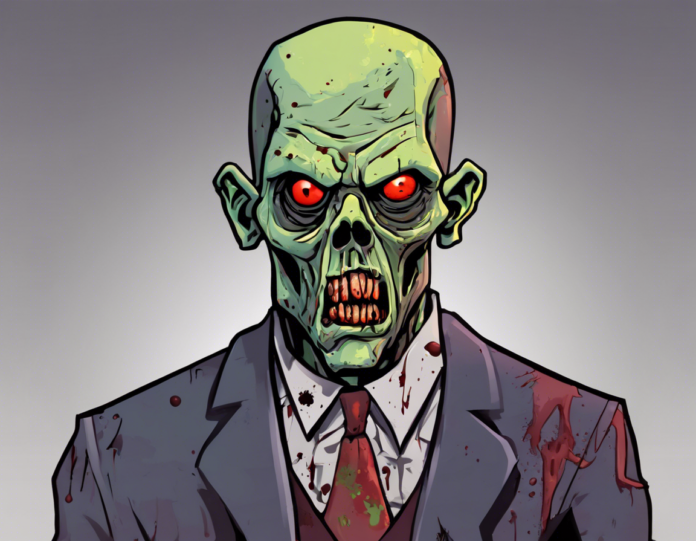In the realm of horror fiction and pop culture, zombies have long held a special place as one of the most compelling and fear-inducing creatures. The image of a reanimated corpse, driven by a relentless hunger for human flesh, has captivated audiences for decades in movies, TV shows, and literature. From classic films like "Night of the Living Dead" to modern hits like "The Walking Dead," zombies continue to be a source of fascination and terror for many.
But beyond their role in entertainment, zombies also have a rich history and cultural significance that extends far beyond the realm of fiction. In this article, we will explore the mysteries and nuances of zombies, delving into their origins, evolution in popular culture, and the various beliefs and practices associated with these undead beings.
The Origins of Zombies
The concept of the zombie can be traced back to Haitian folklore, where it is believed that sorcerers, known as Bokors, have the power to reanimate the dead and control them as mindless servants. In Haitian Vodou, zombies are not seen as flesh-eating monsters but as individuals robbed of their will and humanity. This traditional view of zombies as victims of dark magic stands in stark contrast to the modern portrayal of zombies in popular culture.
The Evolution of Zombies in Popular Culture
The modern zombie as we know it today is largely influenced by George A. Romero's groundbreaking film "Night of the Living Dead" (1968). In this movie, zombies are portrayed as reanimated corpses that feast on the flesh of the living. Romero's vision of zombies as apocalyptic horrors set the stage for the zombie genre as we know it today, inspiring countless films, TV shows, and video games.
Over the years, zombies have become a ubiquitous presence in popular culture, with diverse interpretations and variations. From fast-moving zombies in films like "28 Days Later" to comedic takes on the genre in movies like "Shaun of the Dead," zombies have proven to be a versatile and enduring trope that continues to captivate audiences around the world.
The Psychology of Fear
One of the reasons why zombies are such effective horror symbols is their ability to tap into deep-seated fears and anxieties. The idea of a relentless, unstoppable force that is driven by a primal urge to consume human flesh evokes feelings of helplessness, dread, and the collapse of society. Zombies represent the ultimate threat – a force that cannot be reasoned with or stopped by conventional means.
Zombie Apocalypse Preparedness
The popularity of zombie themed entertainment has also given rise to the concept of zombie apocalypse preparedness. While the likelihood of a zombie outbreak is, of course, purely fictional, the notion of preparing for a worst-case scenario can be a useful exercise in emergency preparedness. From stocking up on supplies to having a plan for evacuation, the principles of zombie apocalypse preparedness can be applied to real-world disaster scenarios.
Zombies in Literature and Art
In addition to film and television, zombies have also made a significant impact in literature and art. Authors like Max Brooks ("World War Z") and Colson Whitehead ("Zone One") have explored the zombie genre in profound and thought-provoking ways, using the metaphor of the zombie apocalypse to comment on society, politics, and human nature.
In the art world, zombies have been a popular subject for painters, sculptors, and illustrators. From classic horror art to modern interpretations of the zombie mythos, artists have been drawn to the eerie and unsettling imagery of the undead.
Zombies in Folklore and Mythology
Outside of Western pop culture, zombies and similar undead creatures can be found in various folklore and mythologies around the world. In Chinese mythology, for example, there are stories of Jiangshi, reanimated corpses that hop around draining the life force from the living. In European folklore, the idea of the revenant – a deceased person who has come back to haunt the living – shares similarities with the concept of the zombie.
Frequently Asked Questions (FAQs)
1. Are zombies real?
No, zombies are purely fictional creatures that exist in the realm of myth, folklore, and popular culture.
2. What is the origin of the word "zombie"?
The word "zombie" is believed to have originated from the West African word "nzambi," which means "spirit of a dead person."
3. Can zombies run?
In modern portrayals of zombies, they are often depicted as slow-moving creatures. However, in some films and TV shows, zombies are shown as being able to run or exhibit other enhanced abilities.
4. How do you kill a zombie?
In most zombie fiction, the most effective way to kill a zombie is by destroying its brain. This can be done through methods such as shooting, bludgeoning, or decapitating the zombie.
5. Why are zombies so popular in pop culture?
Zombies tap into primal fears of death, disease, and societal collapse, making them effective symbols of horror and anxiety. Additionally, the versatility of the zombie trope allows for a wide range of creative interpretations in storytelling.
In conclusion, zombies continue to fascinate and terrify audiences around the world, serving as powerful symbols of mortality, fear, and societal breakdown. Whether as mindless monsters in a post-apocalyptic wasteland or as tragic figures caught in the grip of dark magic, zombies occupy a unique and enduring place in our collective imagination.

